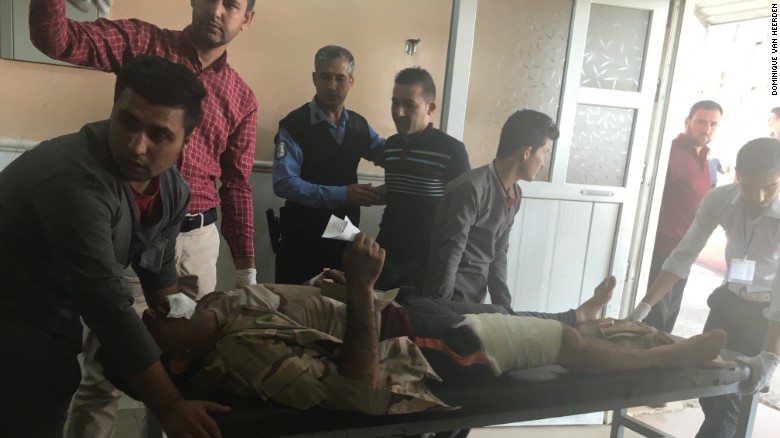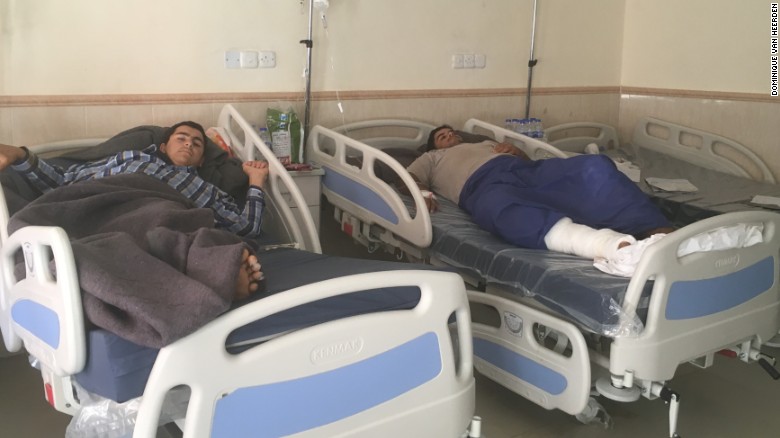
Bloodied bandages are tossed aside and new ones applied to fresh wounds. As doctors and staff work in the controlled chaos, more ambulances arrive with more men cut and punctured by shrapnel from a car bomb. A man screams in pain as a doctor cleans a gaping wound on his thigh.
We are at al Shikan Hospital in Iraq's Nineveh province, just 45 kilometers (28 miles) from Mosul, where Iraqi troops and federal police are battling ISIS, and, in some areas, taking a beating.
Minutes earlier we had been talking with Qassem and Abdullah, two soldiers from the army's 16th Division who had been wounded along with five others by a car bomb as they fought ISIS in a village just north of Mosul last week. As we wrapped up the interview, word came of more casualties coming in.
Another car bomb had been targeted at Qassem and Abdullah's unit. Men who had survived the first bombing unscathed were now torn and bleeding from another attack.
Abdullah looked aghast as he saw friends and comrades being brought in one after another. At one point he put a hand on the shoulder of one of the wounded being stretchered in, his uniform ripped and bloodied.
Perhaps a dozen, maybe more, arrived over the next hour or so. In the frenzied triage area it was difficult to keep count, with doctors and medics first having to decide who was the most badly hurt, who most urgently needed this hospital's one functional operating theater.

Al Shikan hospital wasn't set up for this. Before this war, it was not much more than the town's clinic, serving a district of 300,000 people. Today it is a frontline combat hospital -- dealing with the worst that modern weaponry can do to a body. To add to the workload, it is the only hospital in Nineveh province that is not controlled by ISIS.
They are doing what they can here, and doing it well, but the staff are fearful of what is to come. There are an estimated 1.2 million civilians in Mosul and ISIS is using many as human shields -- the militants even using occupied family homes as mortar or sniper positions.
The risks of civilian casualties in an urban combat environment is obvious. Adding a barbaric strategy of intentionally putting those civilians on the front line hardly bears thinking about.
No comments:
Post a Comment